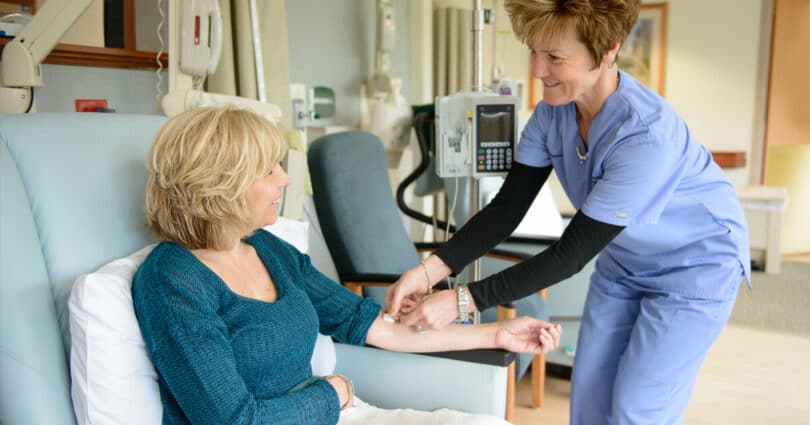When chemotherapy is your first treatment for cancer, it’s called ‘‘neoadjuvant therapy.’’ It’s often used for advanced breast cancer or large tumors that complicate surgery. But it has other equally important benefits.
What is neoadjuvant chemotherapy?
You receive neoadjuvant chemotherapy for breast cancer before your main treatment. In breast cancer, the main treatment is likely to be:
- mastectomy
- breast-conserving surgery (lumpectomy)
Other treatments include hormone therapy and targeted therapies.
RELATED: Foods That Help Prevent Breast Cancer Risk
When is neoadjuvant chemotherapy used to treat breast cancer?
Neoadjuvant chemotherapy for breast cancer may be beneficial if you have:
- locally advanced breast cancer with lymph node involvement
- a large tumor that may complicate surgery
- other health concerns that increase the risks of immediate surgery
- inflammatory breast cancer
- triple-negative breast cancer
- HER2-positive breast cancer
There’s a lot to consider, so it comes down to a case-by-case decision. To figure out whether you’re a good candidate, your oncology team will consider any other health concerns you may have.
In addition to a clinical examination, some tests that can help inform the decision are:
- breast MRI
- breast ultrasound
- biopsy
These tests help determine key factors such as:
- tumor type
- grade (aggressiveness)
- whether cancer has invaded the lymphatic or vascular system
- whether cancer has spread to distant organs/sites (if it has, then surgery is not an option)
In addition to deciding the order of treatments, this information can help determine which chemotherapy drugs are most likely to be effective.
RELATED: 5 Side Effect-Friendly Smoothies
What are the potential side effects of neoadjuvant chemotherapy?
Side effects from neoadjuvant and adjuvant chemotherapy are the same. Much depends on the specific drugs, doses, and number of cycles.
Although the list of potential side effects is long, you probably won’t have them all. Some side effects from chemo are:
- fatigue
- hair loss and nail changes
- loss of appetite and weight changes
- nausea and vomiting
- diarrhea or constipation
- mouth sores
- easy bruising and bleeding
- risk of infection
- change in the menstrual cycle
- a slight decrease in mental function, commonly known as “chemo brain”
Most of these side effects begin to fade when treatment ends. Some potential longer-term side effects may include:
- nerve damage (neuropathy), which can result in numbness, tingling sensations, and pain, particularly in the arms and legs
- premature menopause, which can also increase the risk of heart disease, bone loss, and osteoporosis
- infertility

